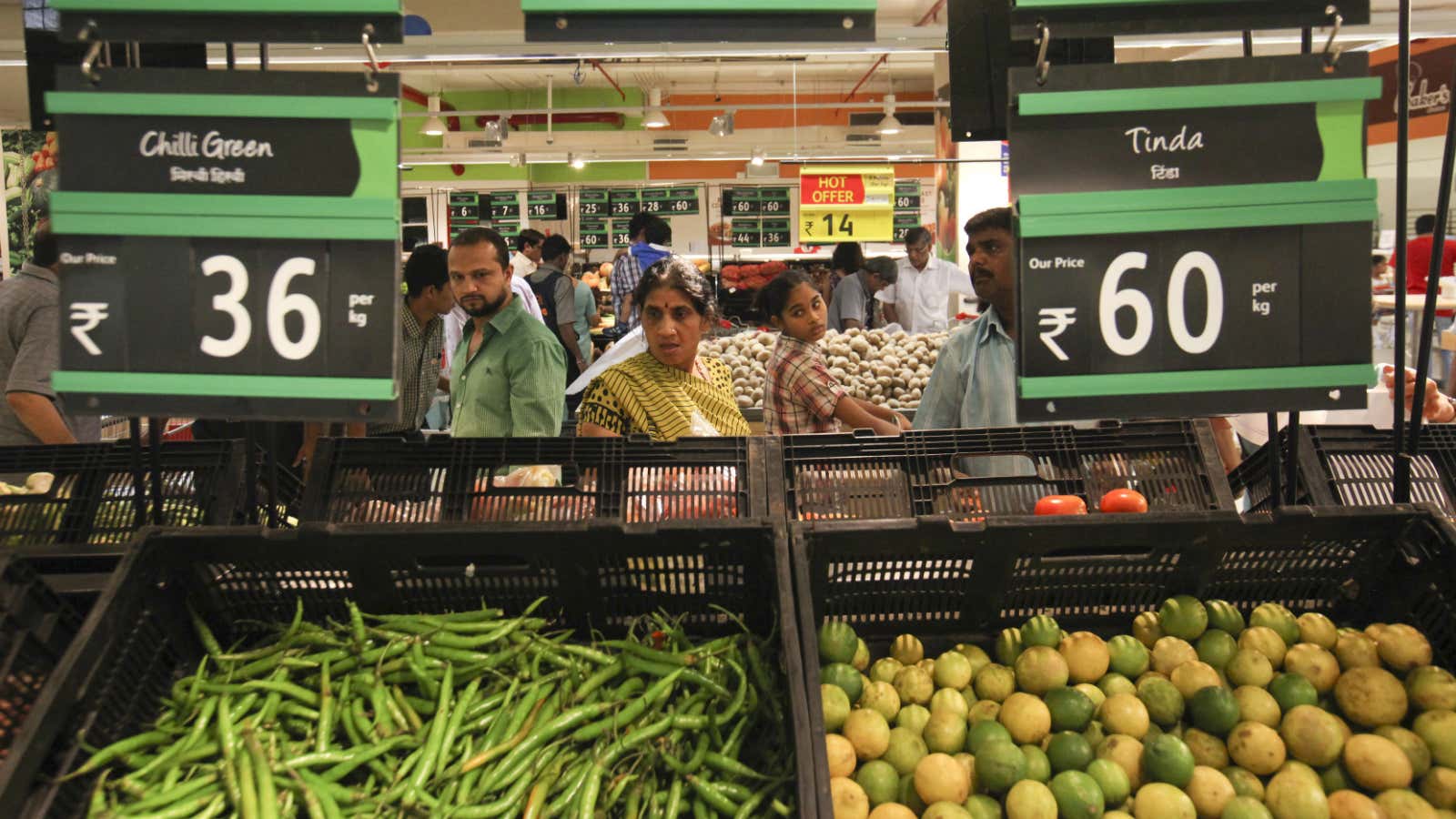It’s true the world over and it’s true in India: If you want to eat healthier, you’ve got to pay more.
Indian consumer companies are charging a premium of between 22% and 82% on variants of flour, noodles, oil, and other products that come with added nutrients and health benefits, according to a recent report by research agency Nielsen. And customers are all too willing to splurge.
So, India now has a small but growing market for healthier foods and beverages, including oat cookies, multi-grain flour, and green tea. The report pegs the market for healthy foods in India at Rs10,352 crore ($1.6 billion), with an annual growth rate of about 10%.
“Consumers are clearly looking at labels on packaged food and are willing to pay more for products that make the cut,” the report said.
Nielsen studied top categories of packaged food to show how Indian companies are pricing their products.
Passing on the parathas?
Healthy eating isn’t as big a trend in India as it is in the West and, as Nielsen notes, “cultural factors and eating habits make Indians prone to weight issues.” But as consumers are increasingly exposed to “international body-image parameters,” the research agency expects Indians to start focusing more on health and wellness.
To fulfil the growing demand, consumer companies have been expanding their offerings in India.
For instance, Britannia and ITC have flooded the market with oat, ragi, almond, and wheat biscuits. In 2014, Nestle India launched the wheat-flour variant of its popular noodle brand Maggi, positioning it as a breakfast option. Green tea brands have spent top dollar on positioning the beverage as a novelty in India.
Industry experts, however, believe the market still has a long way to go before such food becomes mainstream.
“Such food is still consumed by a certain socio-economic class, i.e. A and A+ in India (that are typically high-income households). Such consumer classes typically have higher spending capacity and are, therefore, willing to pay to buy extra nutrition. But it will reach a tipping point soon,” said Neeraj Kakkar, founder and CEO at Hector Beverages, which sells the Paper Boat brand of packaged drinks in flavours such as kokum and aamras.
Kakkar said health products also cost companies more.
“There are more expensive ingredients used. Also, their economies of scale are still small, which means their production costs can be high compared to more mass market products.”
